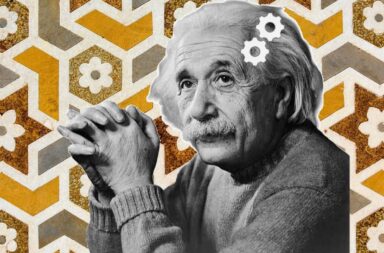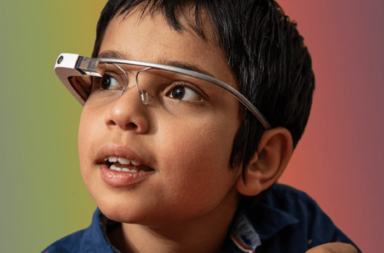Like many autistic admirations, people with autism and Pokémon were always going to form some kind of attachment as, without question, Pokémon is everywhere; It’s on T-shirts, TV, it’s on game consoles, it’s at sports games, it’s on the end of the pen I am writing the notes of this article with and, in some rare corners of the world, it has even found itself on the side of planes.
Put simply, this means that, no matter where you are at any given time, there’s a good chance that Pikachu will be peeking at you and, for that reason alone, it will have the intrigue of an autist sooner rather than later.
However, unlike those who are not on the spectrum, for many, Pokémon won’t just be a fleeting interest but a full-blown fascination: a fixation which isn’t just indulged in for fun, but obsessed over like a 90s’ kids on the hunt for a shiny Charizard card. So, why is this? How can this knowledge be used to support autistic people and, more importantly, what does Pokémon do differently to ensure that when we are out ‘catching ‘em all’ it catches our hearts?

Why do Autistic People like Pokémon?
Interestingly, despite Pokémon being the biggest entertainment franchise of all time (yes, even bigger than Marvel), for many autistic people it is often the smaller ideas it carries that can explain why we are so likely to become hooked.
Take for example the main plot of the franchise where, regardless of whether you play the games or watch the show, the protagonist aims to be the ‘Pokémon Master’. When viewed over the shoulder of a loved one, this idea can seem quite grandiose and intimidating, yet, with every new release, this is always about beating 8, very similar gyms, and 4, very similar, elite trainers.
Furthermore, while the ‘Pokémon battles’ these consist of may look complicated, the truth is, if you can understand Rock, Paper, Scissors, you already have what it takes to win a match – wherein:
- Fire-type Pokémon beat grass-types
- Water-types beat fire-types
- Grass-types beat water-types.
For autistic people this is perfect as, while our minds love to make lots of little connections between limited topics (as opposed to making wild leaps), we love it even more when we know that these connections won’t be threatened with any kind of looming change. Pokémon therefore gives us this minimalistic security in spades and, as every new release contains hundreds of Pokémon which are new (but still familiar), this is constantly being reinforced without ever feeling overwhelming.
That isn’t to say that Pokémon has no depth. In fact, each individual Pokémon has such a range of stats, natures and typings to learn, you could easily spend days uncovering the ins and outs of each creature (and, believe me, I do). However, the beauty of this lies in the fact that most of the Pokémon detailing is given in concrete numbers e.g. it’s level can be anywhere between 1-100.
This is important in explaining why an autistic interest in Pokémon can be so strong as, unlike other interests, where the more we learn the more questions we have, Pokémon just gives a satisfying inarguable digit – which is soothing for a mind which feels like it’s always seeking more.
For me, this makes Pokémon a kind of warm blanket I can count on releasing every 3 years, which I will book time off work for, bulk make food in preparation of and inform all my nearest and dearest to stay back for. Sure, at the end of my intense gaming session I will look back and realise that the experience has pretty much been parallel to every other game but, when you’re autistic, repetition doesn’t create boredom, it creates more excitement each time around.

Why Autistic People LOVE Pokémon
Nevertheless, autistic people don’t just fall in love with Pokémon because it offers them an escape to a simpler and safer reality. There is also a valuable lesson in self-reflection, which comes from watching and playing the series.
Take for example the inclusion of the disguise Pokémon Mimikyu: a Pokémon who spends its life masked in a Pikachu costume (in an effort to replicate the popularity of the series mascot), or maybe consider Hatenna: a Pokémon whose entry in the Pokédex (the Pokémon version of Wikipedia) states that ‘If this Pokémon senses a strong emotion, it will run away as fast as it can. It prefers areas without people’. It doesn’t take much of a leap to say that autistic people would see ourselves in these personas and, sure enough, we have plenty of articles out there with autistic people stating just that.
So why is this important? Well, while on the surface most people can see themselves in a bowl of Cheerios (if they look close enough), what’s brilliant is that this therapeutic comparison is further rewarded in the Pokémon world where, despite change and evolution playing a huge part in how Pokémon can develop, many games and episodes revolve around the theme that this change isn’t always necessary to become the best you; as altering your identity can bring a whole new slew of issues.
In a life where a real Mimikyu would be subsequently looked over, whilst Hatenna would be forced to socialise, it’s hard to imagine that this isn’t a message autistic people wish we could hear more.
Of course, with the show being an anime means that there are also many more reasons why autistic people would love this series but, at the risk of repeating my ‘Why do Autistic People LOVE Anime?’ article, I will instead link that discussion and move on to the other great autistic benefits that Pokémon rewards our love with.
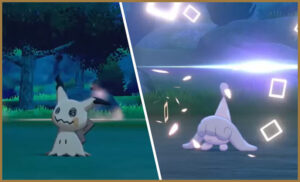
Why Pokémon is GREAT for Autistic People?
While I could go on and on about the different ways autistic people have benefited from Pokémon, such as therapies which have helped with facial recognition or how the games themselves seem to reduce anxiety and stress, it’s unquestionable that one of the series newest entries: Pokémon Go, has supported autistic people with, well, everything.
This can be seen in how the game not only requires outdoor exploration to find success, but in that it encourages collaboration to achieve the best result – something which, upon release, erupted in many local communities of likeminded players. Subsequently, these gatherings have come to serve as hotspots for autistic people to learn valuable life skills, like communication, teamwork and improving motor functions (all whilst soaking up that sweet, sweet Vitamin D).
Further to this, teachers found that playing the game in school actually increased concentration as the often ‘visually-geared’ autistic brain becomes occupied, leaving our ears to focus and better absorb the information around. These same teachers also found that, when autistic people were being engaged this way, they were also more welcoming of two-way dialogue and more likely to get involved.

With all that said though, there is one additional perk of being a modern-day autistic Poké-fan which I wanted to finish on, and that is the incomparable bonding opportunities we are currently seeing, as people raised on the franchise now find their spectrum children following in their footsteps.
For those who haven’t heard these heart-warming tales, they come from parents, who once struggled to interpret their child’s limited vocabulary, now finding a mutual understanding over the fixation that they have both at one time shared. Whilst, alternatively, some parents find that, with their already established base understanding, they can create bridges between perspectives, wherein, instead of asking what a child struggling with interoception what they are feeling, they can ask which Pokémon they’re more like today; perhaps the angry Primeape or the confused Psyduck?
For those who want to practice emotions through the use of Pokémon, visual aids i.e. cards or posters can help (particularly for those with limited vocabulary).
Even if it wasn’t for all the information which came before, these anecdotes alone would give me reason enough to love Pokémon, but not because of the life-changing experiences they represent but because it shows that, even after 25 years, the Pokémon world is revolutionising ours; from neurotypical to neurodiverse and for generations and generations to come.
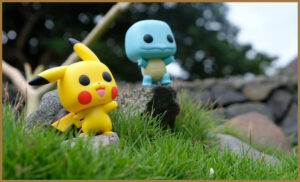
Additional Reading: Was the creator of Pokémon Autistic?
Hang around the autism community for long enough and you are likely to hear someone say that, amongst the many greats our community has created, there sits one Satoshi Tajiri – a man who just so happens to be the creator of Pokémon. During these accounts, many will cite that evidence of this is all around – he was an avid bug collector when he was younger and the developer is exceptionally reclusive. However, does this mean it’s true?
Well, if you do some online research, you will certainly find many articles saying that this is the case. Yet, in many circumstances these claims are unreferenced and, what’s more, these articles often incorrectly feature the image of Tsunekazu Ishihara (who is the CEO of the Pokémon company, not the creator).
Upon further investigation, it seems that the most concrete evidence I can find for this rumour leads back to Tajiri’s biography – a seemingly non-affiliated book which references a MySpace post where Tajiri announced he is autistic. This too proves problematic though as, since its publication, this post has been proven to come from a fake Satoshi Tajiri account (which shouldn’t come as a surprise since 1. Tajiri avoids most social opportunities including social media and 2. Myspace wasn’t exactly popular in the East).
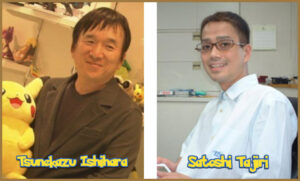
So, does this mean Tajiri is definitively autistic? No, but it doesn’t mean he is not autistic either as, whilst researching this fact, I also spoke to Pokémon Historian Dr Lava who stated that his ‘personal opinion’ is that it’s ‘probably true’ – although he believes that ‘since there’s no source, it’s probably inappropriate to publicly speculate about it’.
Nevertheless, when pressed, Dr Lava stated that his impression comes from ‘reading about him doing things like making a chart of every Pokémon’s intelligence, despite there being no in-game [intelligence] stat’ as well as signalling Tajiri’s mannerism in the few public appearances he has made.
As for my opinion, I think I just want to believe that the great Tajiri is autistic. However, given that most of the evidence stems from him wanting to be out of the limelight, I think it would be better to respect the man’s wishes and stop making any assumptions at all. Of course, what you do is up to you. Yet, whether you follow suit or continue to search, just remember that as with everything on the spectrum, you shouldn’t always believe what you read.

Carry on the Conversation:
If you ever have been or still are a fan of Pokémon, let me know your favourite in the comments below! I personally love Corsola (even more so since its new form reveal) and I would love to hear about all the other unique preferences out there.
Did you LOVE this ‘Why autistic people LOVE’ article? Then why not check out the other posts I have done on Dinosaurs, Lego, Trains and Anime.
As always, I can also be found on Twitter @AutismRevised, on Instagram @autisticandunapologetic and via my email: AutisticandUnapologetic@gmail.com.
If you like what you have seen on the site today, then show your support by liking the Autistic & Unapologetic Facebook page. Also, don’t forget to sign up to the Autistic & Unapologetic newsletter (found on the sidebar on laptops and underneath if you are reading this via mobile) where I share weekly updates as well as a fascinating fact I have found throughout the week.
Thank you for reading and I will see you next time for more thoughts from across the spectrum.
